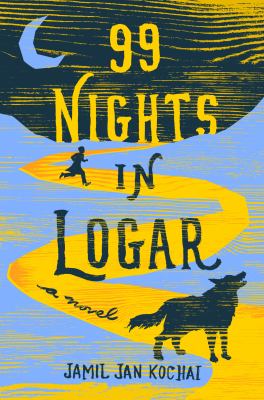Tales of Afghanistan
Debut novel captures Afghan American coming of age story.
When Jamil Jan Kochai was 12, his family traveled from their West Sacramento home to their native Afghanistan. During that 2004 trip, Kochai was attacked by the family dog, witnessed what the U.S. invasion had wrought, and soaked up stories of the distant and recent past. A decade later, he brought a short story inspired by that trip to his first graduate writing workshop at UC Davis.
“The story had nestled itself inside of me,” said Kochai (M.A., English, ’17). “Everyone in the workshop told me ‘this is more than a short story.’”
 That story became his debut novel, 99 Nights in Logar, published in early 2019 to glowing reviews.
That story became his debut novel, 99 Nights in Logar, published in early 2019 to glowing reviews.
In the book, 12-year-old Afghan American Marwand is visiting Afghanistan when the family dog escapes. He and his cousins set out to retrieve the dog, a task that becomes a physical and psychological journey into the history of a family, a country, and a people scattered around the globe. It is both immediate and contemporary — boys chasing a dog though an occupied country — and timeless, with ancient tales and fables alternating with stories about the Soviet and U.S. invasion spilling forth.
The structure of the novel and the title were inspired by One Thousand and One Nights, a collection of Middle Eastern folk tales.
Although he has always been an avid reader, Kochai hadn’t considered writing until a teacher at River City High School in West Sacramento “basically forced me to take a creative writing class.”
With encouragement from teachers and professors, he continued writing while earning an English degree at California State University, Sacramento, then came to UC Davis for his master’s degree in creative writing.
“I have a long history with Davis,” Kochai said.
His aunt attended UC Davis, and he and his family often made the short trip from West Sacramento to visit her. His brother Jalil earned a master’s degree in education from UC Davis and his brother Marwand is a student now. (Kochai picked the same name for the novel’s main character because Marwand is a traditional Afghani name.)
The novel’s Marwand is much like the author. Kochai, who was born in Pakistan and brought to the U.S. as a baby, seems thoroughly American, even Californian. But he didn’t learn to speak English until he was in the second grade and after the attacks of Sept. 11, 2001, he was bullied and his family became cautious and withdrawn.
“I wasn’t sure if I belonged to this place,” he said, “and, in a more profound way, I didn’t know if I belonged to Afghanistan either. In the book, I tried to get a voice that encapsulated the way I experienced the world.”
That voice reflects his Afghan and Muslim heritage, his American upbringing, a Northern California conversational cadence, and his first language, Pashto, which has a rich history of storytelling and poetry.
After completing his studies at UC Davis, he earned a Master of Fine Arts at the University of Iowa. After two years away, Kochai returned to California early this year with a real sense of belonging.
“When I was away, I found myself feeling very proud of being from California,” he said. “I’ve become more aware of my identity as being from California and Sacramento, and it has been making its way into my writing.”
– Jeffrey Day, content strategist in the UC Davis College of Letters and Science, wrote this article for the College of Letters and Science Magazine.
